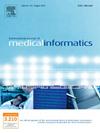CPRS:基于llm的临床方案推荐系统。
IF 3.7
2区 医学
Q2 COMPUTER SCIENCE, INFORMATION SYSTEMS
International Journal of Medical Informatics
Pub Date : 2024-12-04
DOI:10.1016/j.ijmedinf.2024.105746
引用次数: 0
摘要
背景:临床试验方案作为临床试验的基础性文件,旨在确保试验按照研究者设定的目标进行。与传统模型相比,具有优越语义性能的大型模型的出现为临床试验方案的研究建议提供了新的视角。方法:本文提出了一种基于大语言模型(Large Language Models, LLMs)的临床试验方案推荐系统,将GPT-4与知识图谱相结合,辅助临床试验方案推荐。使用知识图谱作为辅助工具,确定了具有相似特征的有限临床试验项目集。随后,通过GPT-4的语义能力,对患者进行有针对性的推荐。结果:通过实验比较了GPT-4和来自SBERT家族的多个处理语义相似度的模型。结果表明,GPT-4能够基于相似性标准更好地筛选临床试验方案,并为患者提供有针对性的推荐。因此,该功能满足了项目和患者之间的匹配需求,并增强了临床试验方案推荐的自动化。此外,在未来的推荐过程中,将充分考虑患者的个人因素,提供更加准确和个性化的方案推荐。结论:将知识图谱与法学模型相结合,可以更好地理解和处理临床试验方案信息,为患者推荐合适的方案,提高匹配效率和准确性。此外,该系统的应用有助于实现临床试验方案推荐的自动化,在临床试验研究所、公共卫生管理部门等医学研究机构中发挥着至关重要的作用。此外,它大大有助于推进临床试验和整个医学领域的发展。本文章由计算机程序翻译,如有差异,请以英文原文为准。
CPRS: a clinical protocol recommendation system based on LLMs
Background: As fundamental documents in clinical trials, clinical trial protocols are intended to ensure that trials are conducted according to the objectives set by researchers. The advent of large models with superior semantic performance compared to traditional models provides fresh perspectives for research recommendations in clinical trial protocols.
Method: A clinical trial protocol recommendation system based on Large Language Models (LLMs) is proposed in this paper, combining GPT-4 and knowledge graph to assist in clinical trial protocol recommendations. Using knowledge graphs as an auxiliary tool, a finite set of clinical trial projects with similar features is identified. Subsequently, through the semantic capabilities of GPT-4, targeted recommendations are made to patients.
Results: Experiments were conducted to compare GPT-4 and multiple models from the SBERT family that handle semantic similarity. The results indicate that GPT-4 is capable of better sorting clinical trial protocols based on similarity criteria and offering targeted recommendations to patients. Consequently, this capability meets the matching requirements between projects and patients and enhances the automation of clinical trial protocol recommendations. Additionally, in the future, personal factors of patients will be fully considered during the recommendation process to provide more accurate and personalized protocol recommendations.
Conclusion: By integrating knowledge graphs and LLMs, a better understanding and processing of clinical trial protocol information can be achieved, enabling the recommendation of appropriate protocols for patients and enhancing both matching efficiency and accuracy. Furthermore, the application of this system contributes to the automation of clinical trial protocol recommendations, playing a crucial role in medical research institutions such as clinical trial research institutes and public health management departments. Additionally, it significantly aids in advancing the development of clinical trials and the medical field at large.
求助全文
通过发布文献求助,成功后即可免费获取论文全文。
去求助
来源期刊

International Journal of Medical Informatics
医学-计算机:信息系统
CiteScore
8.90
自引率
4.10%
发文量
217
审稿时长
42 days
期刊介绍:
International Journal of Medical Informatics provides an international medium for dissemination of original results and interpretative reviews concerning the field of medical informatics. The Journal emphasizes the evaluation of systems in healthcare settings.
The scope of journal covers:
Information systems, including national or international registration systems, hospital information systems, departmental and/or physician''s office systems, document handling systems, electronic medical record systems, standardization, systems integration etc.;
Computer-aided medical decision support systems using heuristic, algorithmic and/or statistical methods as exemplified in decision theory, protocol development, artificial intelligence, etc.
Educational computer based programs pertaining to medical informatics or medicine in general;
Organizational, economic, social, clinical impact, ethical and cost-benefit aspects of IT applications in health care.
 求助内容:
求助内容: 应助结果提醒方式:
应助结果提醒方式:


